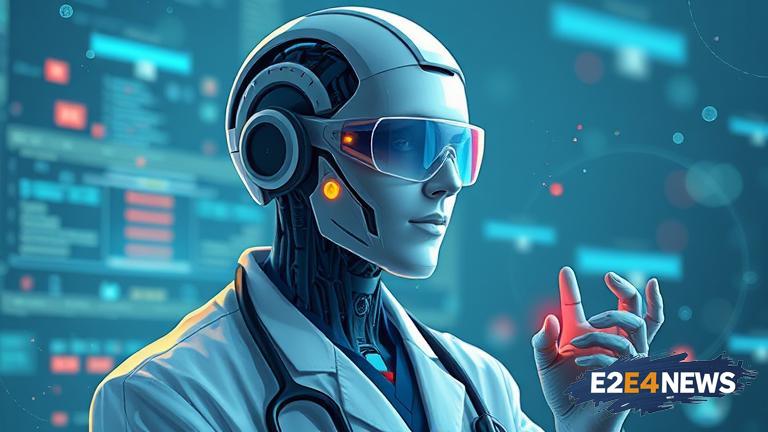The integration of artificial intelligence in healthcare is a rapidly evolving field, with AI doctors poised to revolutionize the way medical professionals diagnose and treat patients. This technological advancement has the potential to improve the accuracy and efficiency of medical diagnoses, reduce costs, and enhance patient outcomes. AI doctors can analyze vast amounts of medical data, identify patterns, and make predictions, allowing for more informed decision-making. Furthermore, AI-powered systems can help reduce the workload of human doctors, enabling them to focus on more complex and high-value tasks. The use of AI in healthcare also raises important questions about the role of human doctors in the future. While some may worry that AI doctors will replace human physicians, others argue that AI will augment and support the work of doctors, rather than replace them. In fact, AI can help doctors to identify potential health risks and provide personalized treatment recommendations. Additionally, AI-powered chatbots and virtual assistants can help patients to better manage their health and wellness, providing them with personalized advice and support. The development of AI doctors is also driving innovation in medical research, with AI-powered systems able to analyze large datasets and identify new patterns and insights. This can lead to the discovery of new treatments and therapies, and improve our understanding of complex diseases. However, there are also challenges and limitations to the use of AI in healthcare, including concerns about data privacy and security. Moreover, AI systems can be biased and discriminatory, which can perpetuate existing health inequalities. To address these challenges, it is essential to develop and implement AI systems that are transparent, explainable, and fair. This requires a multidisciplinary approach, involving collaboration between healthcare professionals, data scientists, and ethicists. The use of AI in healthcare also raises important questions about liability and accountability, particularly in cases where AI systems make mistakes or provide incorrect diagnoses. To address these concerns, it is essential to develop clear guidelines and regulations for the use of AI in healthcare. Despite these challenges, the potential benefits of AI doctors are significant, and this technology has the potential to transform the healthcare landscape. In the future, we can expect to see AI doctors being used in a variety of settings, from primary care to specialized medicine. AI-powered systems will also be used to support medical education and training, providing doctors with the skills and knowledge they need to work effectively with AI systems. Moreover, AI will play a critical role in the development of personalized medicine, enabling doctors to tailor treatments to the individual needs and characteristics of each patient. The use of AI in healthcare will also drive innovation in medical devices and equipment, with AI-powered systems being used to develop new diagnostic tools and therapies. In conclusion, the emergence of AI doctors is a significant development in the field of healthcare, with the potential to improve patient outcomes, reduce costs, and enhance the overall quality of care. While there are challenges and limitations to the use of AI in healthcare, these can be addressed through the development of transparent, explainable, and fair AI systems. As this technology continues to evolve, we can expect to see AI doctors playing an increasingly important role in the healthcare landscape.
